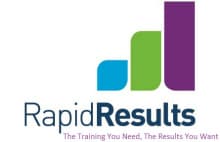We want information to be absorbed right? The whole aim of us training staff is for them to grasp the concepts we are putting across to assist them upskill and increase performance. The issues we currently face in the training field are all the same – the catch cry of “How can we do more with less and get a faster better result?”
What we are facing is the double-edged sword – faster faster, get them performing! However, if we cut corners reduce time and content then we face the issue of the learners not being fully equipped to perform the tasks leading to frustration and ultimately walking away and finding another job. This puts us right back at square one and now under even more pressure to turn around the replacing staff and get them performing and before we know it we are running back-to-back inductions. The other way to describe this cycle is simply trying to put your thumb in the dam to stop the leak. Sound familiar?
So let’s change the process, accept the fact we have to do better with less; less time and less resources and higher expectations, but how?
Relational Learning Concept
We need to change the way we are putting the information across to the group and make it as easy as possible for them to grasp the new information and feel confident with it. One key aspect of this process is making the content relational. Here is an explanation of the relational concept, taken from the Relational Institute website:
Although some students report initial frustration with the process, they ultimately achieve a cognitive breakthrough whereby they can apply the principle to virtually all contexts. In Relational Learning jargon, this is an “Aha!”
In a school setting, students begin to discover and comprehend the value of principles as teachers relate different subject matter from the same perspective. Here’s an example —
At a Junior High School in Utah, teachers of math, English, music, history, health, etc., gathered weekly to review their teaching plans for the following week. The discussion centred on the process of finding an underlying pattern or principle which crosses all subjects.
After each teacher presented his or her lesson plan, discussion centred on the principle which is true for every lesson. A model was selected to explain the connection between each subject and the underlying pattern or principle.
Then, during the course of the next teaching week, the students received each subject with a connection to a principle that is true in real life. Although the principle is rarely stated, the students discovered naturally the connection between their school work and their life. When this happened, the understanding of math and science and English became integrated more into their decisions and plans. The result was a more satisfied and interested student.
http://relational-institute.org/InTheNews.htm
Applying this concept
The difference here is making the link between all the topics being covered with the same underlying principles and letting the students ‘discover’ the connections themselves. This is far more powerful than simply telling them as they have discovered and internalised it themselves.
Now look at your learning plan and all the topics you have to race through to get someone up to speed and see if you can find the links between them and then thread these common links through each module and watch the lightbulbs come on without you even telling them!
Conclusion
If you have read my previous blogs you will already have a good number of different tools in your training toolbox. The key is not to use each one in isolation but to build each tool one at a time into your training and use them together.
If we can lead people to discover their own concepts and common threads across all of our training and see the links, they will grasp and retain concepts faster and retain them for longer, all leading to increased confidence and willingness to apply them back at work.
Additional benefits will be faster uptake on topics and more interest leading to a ‘wanting to learn’ rather than a ‘having to learn’ mindset.
For more information on assistance with your induction programmes visit www.rapid-results.com or call us on 0800 338356.

Recent Comments